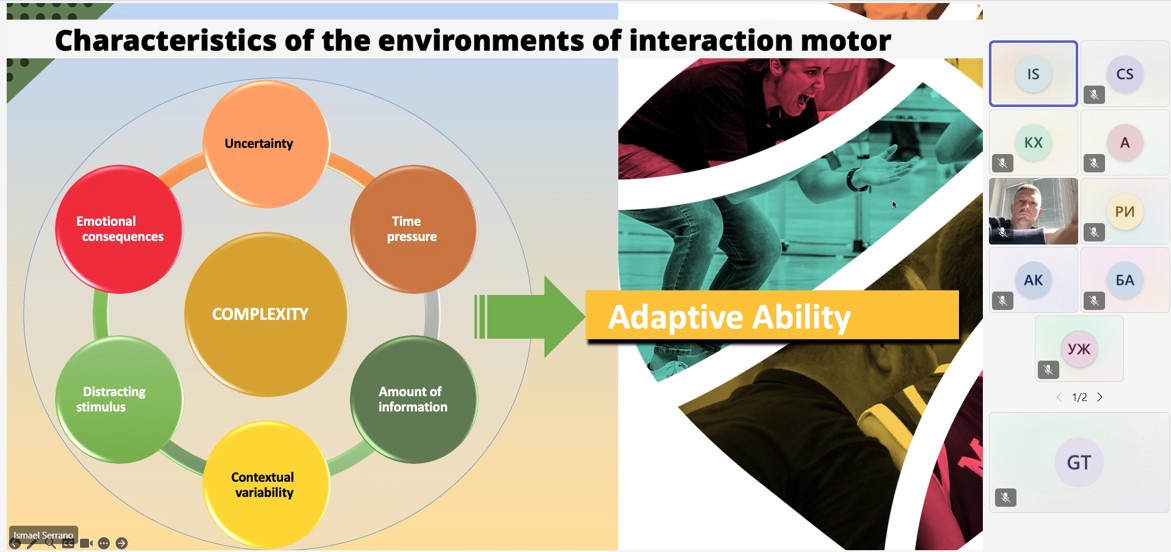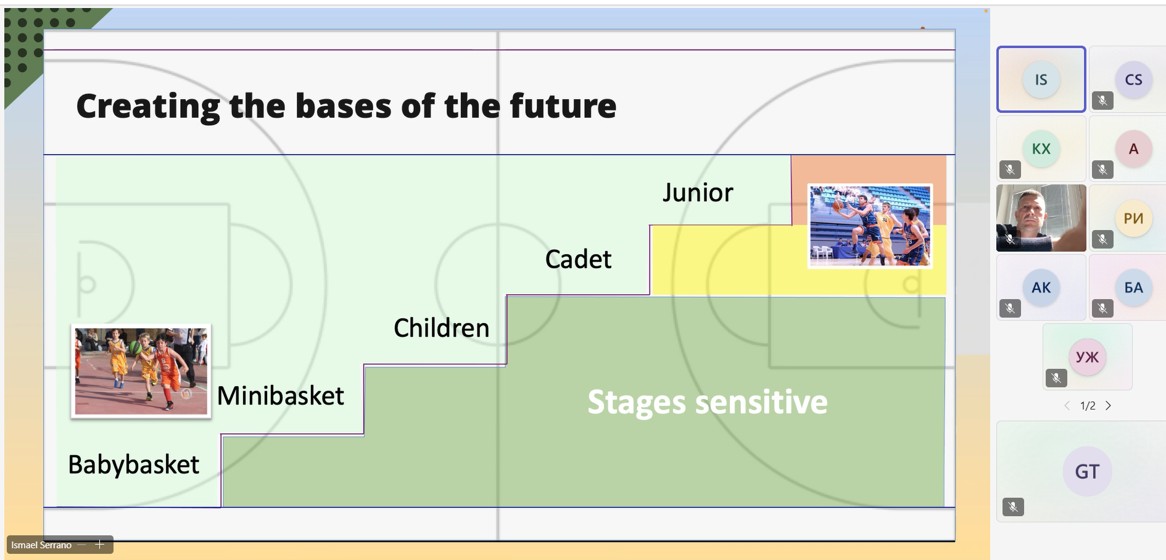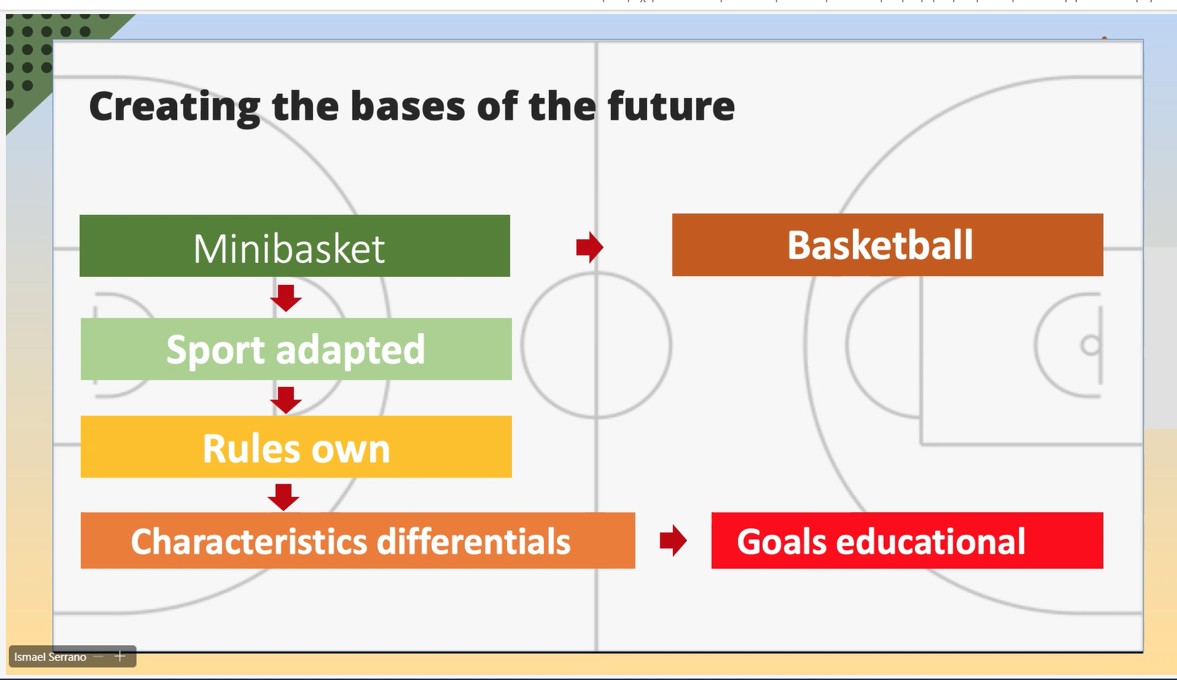Keys to treining in mini-basketball
On April 11, 2025, the Federación Baloncesto de Castilla-La Mancha, as part of the ongoing knowledge transfer and training initiatives within the Basketball-KTN project, organized an educational session titled “Keys to Training in Mini-Basketball.” The presentation highlighted that effective youth coaching extends far beyond teaching technical skills — it encompasses the emotional, cognitive, and social development of children, creating a holistic learning environment adapted to their stage of growth.
The session opened by emphasizing that the foundation of mini-basketball training rests on several key educational objectives: to educate, instruct, stimulate, transform, motivate, mediate, and reinforce learning. Coaches were encouraged to view training as a dynamic process that adapts to context, complexity, and emotional impact. Children learn best when they are guided through environments that reflect the realities and challenges of the game, rather than rigid or overly repetitive drills.
A major focus was placed on the concept of “sensitive stages of development.” These are critical periods in a child’s growth when they are particularly receptive to learning and capable of developing adaptive motor and emotional responses. Understanding these stages — from Babybasket and Minibasket to Junior, Cadet, and Children — allows coaches to tailor their instruction to each player’s physical, cognitive, and emotional readiness, ensuring that development unfolds naturally and positively.
Another central theme was the interaction between teaching and learning. Coaches were encouraged to reflect not only on what and how they teach, but also on what children are expected to learn — and when that learning should occur. Basketball education should combine cognitive, emotional, and motor development, giving children space to explore and experiment. Cooperative and oppositional games were highlighted as valuable tools that blend fun with learning, helping young athletes internalize lessons through discovery and interaction.
The presentation also addressed the progressive development of fundamental and sport-specific skills. Training should first strengthen basic motor abilities such as balance, locomotion, and coordination, before evolving toward sport-specific actions like dribbling, passing, receiving, intercepting, and shooting. As these skills mature, players begin to apply them in tactical contexts — both individually and collectively — learning offensive and defensive strategies that encourage decision-making and teamwork.
Two key teaching strategies were discussed: incidental learning and intentional learning. The first allows children to learn naturally through discovery and play, while the second involves structured guidance with clear objectives. A balanced use of both approaches helps maintain motivation and autonomy, ensuring that technical mastery develops alongside creativity and confidence.
An important dimension of the training was the development of executive functions — working memory, cognitive flexibility, and inhibition — which form the foundation of tactical intelligence. In fast-paced games like mini-basketball, players must analyze, decide, and act within seconds. Encouraging divergent thinking (creative solutions) and convergent thinking (efficient, goal-oriented decisions) prepares young athletes to adapt strategically under pressure.
The conditions for effective practice were also explored. The organization, duration, and structure of training sessions must align with specific learning goals. Psychological factors such as motivation, self-confidence, and emotional safety were identified as decisive in a child’s progress. Coaches were reminded to cultivate a positive and supportive atmosphere, reducing the fear of mistakes and viewing failure as part of the learning process.
Finally, the session emphasized that coaches should act as mediators of learning, not just transmitters of knowledge. Training environments should present players with realistic challenges, uncertainty, and spontaneous situations that mirror the dynamics of actual games. Encouraging personal exploration, emotional regulation, and autonomous decision-making helps children develop both adaptability and resilience. Integrating dual-task exercises, where players process multiple stimuli simultaneously, can further enhance focus and cognitive flexibility.
In conclusion, the session underlined that training in mini-basketball is not merely about teaching technique — it is about building adaptable, intelligent, and emotionally balanced young athletes. By integrating educational, psychological, and motor development principles, coaches help children not only become better players but also more confident, curious, and resilient individuals.
Through initiatives like this, the Federación Baloncesto de Castilla-La Mancha and the Basketball-KTN network continue to promote a holistic approach to youth basketball — one that values learning, growth, and emotional well-being as much as skill and performance.


